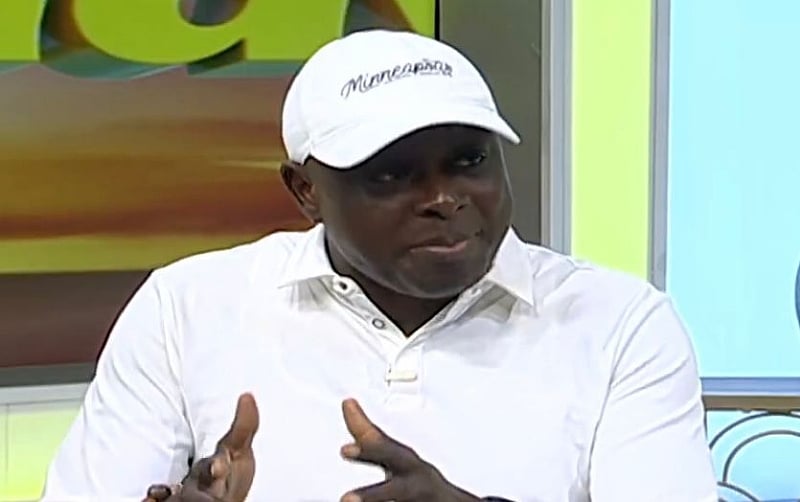Professor Enoch Opoku Antwi, a governance expert and policy analyst, has offered a bleak outlook for the New Patriotic Party’s (NPP) chances in the 2028 general elections. He posits that the NPP faces an uphill battle, primarily due to the perceived economic vulnerabilities of their likely flagbearer, Dr. Mahamudu Bawumia. Prof. Antwi contends that Dr. Bawumia’s track record as the head of the Economic Management Team during a period of economic turbulence, marked by currency depreciation and high inflation, would be a significant impediment to his electoral prospects. He argues that even Dr. Cassiel Ato Forson, the current Finance Minister, would likely triumph over Dr. Bawumia in a head-to-head contest, citing the perceived improvements in the economy under Dr. Forson’s stewardship. This assessment, according to Prof. Antwi, rests on the assumption that economic performance will be a pivotal factor influencing voter decisions in the 2028 elections.
Prof. Antwi’s analysis extends beyond the perceived economic weaknesses of the NPP’s potential candidate. He also highlights the strategic advantage the National Democratic Congress (NDC) enjoys due to its apparent unity and focus on a clear succession plan. He commends the NDC’s approach, particularly the stance of National Chairman Johnson Asiedu Nketiah, who has discouraged internal competition against former President John Mahama, emphasizing the importance of collective success over individual ambitions. This unified front, Prof. Antwi suggests, allows the NDC to present a cohesive and stable image to the electorate, contrasting with potential internal divisions within the NPP during their flagbearership contest. This strategic cohesion, coupled with the perceived positive economic trajectory, positions the NDC favorably for the 2028 elections, in Prof. Antwi’s view.
A key element of Prof. Antwi’s assessment is the emphasis on the perceived economic improvements under the current administration. He contrasts the current economic climate with the period when Dr. Bawumia led the Economic Management Team, suggesting a marked improvement that would resonate with voters. This comparison, he believes, would negatively impact Dr. Bawumia’s electability, as voters would likely attribute the previous economic hardships to his leadership. While acknowledging the potential for the NPP to rally strongly behind Dr. Bawumia, Prof. Antwi maintains that the perceived economic advantages of the NDC, coupled with their strategic unity, would outweigh any such mobilization efforts.
Furthermore, Prof. Antwi’s prediction rests on the assumption that the NDC will successfully execute its succession plan and present a candidate perceived as capable and competent. He underlines the importance of a smooth transition within the NDC, allowing for a groomed candidate to emerge seamlessly. This, he believes, would further consolidate the NDC’s position and strengthen their appeal to the electorate. He implicitly contrasts this with the potential for a divisive flagbearership race within the NPP, which could potentially weaken the party’s image and detract from their campaign efforts. The stability and unity within the NDC, therefore, are presented as crucial factors contributing to their projected victory in the 2028 elections.
The overall picture painted by Prof. Antwi is one of a significant advantage for the NDC going into the 2028 elections. He believes that the combination of perceived economic progress, a united front, and a well-executed succession plan gives the NDC a strong foundation for victory, regardless of who emerges as their candidate. Conversely, he portrays the NPP as facing a challenging uphill battle, burdened by the perceived economic vulnerabilities of their likely flagbearer and the potential for internal divisions during their candidate selection process. This assessment, of course, is based on current trends and projections and remains subject to change as the political landscape evolves in the lead-up to the 2028 elections.
In conclusion, Prof. Antwi’s analysis underscores the importance of economic performance, party unity, and strategic succession planning in influencing electoral outcomes. He projects a difficult path to victory for the NPP in 2028, primarily due to the perceived economic baggage of their likely candidate and the perceived strategic advantages enjoyed by the NDC. This projection, however, should be viewed as an informed opinion based on current circumstances, and the actual outcome of the 2028 elections will ultimately depend on a complex interplay of various factors, including shifts in public opinion, unforeseen events, and the effectiveness of the respective parties’ campaign strategies.


